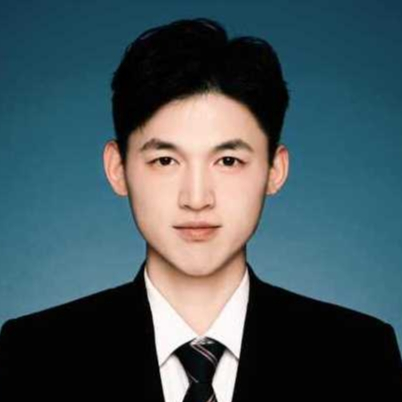
范文:Mid Autumn Festival, also known as Moon Festival, moonlight birthday, moon Eve, autumn festival, Mid Autumn Festival, moon worship Festival, yueniang Festival, Moon Festival and reunion festival, is a traditional festival among Chinese people.
The Mid Autumn Festival originated from the worship of celestial phenomena and evolved from the worship of the moon on autumn Eve in ancient times.
Since ancient times, the Mid Autumn Festival has folk customs such as sacrificing the moon, appreciating the moon, eating moon cakes, playing lanterns, appreciating osmanthus, drinking osmanthus wine and so on.
中秋节,又称祭月节、月光诞、月夕、秋节、仲秋节、拜月节、月娘节、月亮节、团圆节等,是中国民间的传统节日。中秋节源自天象崇拜,由上古时代秋夕祭月演变而来。中秋节自古便有祭月、赏月、吃月饼、玩花灯、赏桂花、饮桂花酒等民俗,流传至今,经久不息。
The Mid-Autumn is a very important Chinese festival. It falls on the 15th day of August. A few days before the festival, everyone in the family will help to make the house clean and beautiful. Lanterns will be hung in front of the house.
On the evening there will be a big family dinner. People who work far away from their homes will try to come back for the union. After dinner, people will light the lanterns which are usually red and round. Children will play with their own toy lanterns happily.
At night the moon is usually round and bright. People can enjoy the moon while eating moon-cakes which are the special food for this festival. They can look back on the past and look forward to the future together. It is said that there was a dragon in the sky. The dragon wanted to swallow up the moon. To protect the frighten the dragon away.
译文:
中秋节
中秋节是中国一个很重要的节日,在八月十五号。在节日来临的前几天,家庭中的每一个人都帮着打扫房子,把房子装扮得漂漂亮亮的,灯笼挂在屋前。
晚上有一顿美餐,离家在外工作的人也要回来团圆。晚饭后,人们点亮灯笼,一般是红色的圆灯笼。孩子们会高高兴兴地玩他们的玩具灯笼。
晚上月亮又圆又大,人们在赏月的同时吃着中秋节特别的食品——月饼。人们在一起回顾过去,展望未来。据说天上有一条龙,它要把月亮吞下去。为了保护月亮,孩子们要弄出很大的响动把龙吓跑。
The moon definitely spins countless legends throughout the ages. Of course, the most famous legend is the one surrounding the "lady living in the moon" that dates back to ancient times, to a day when ten suns appeared at once in the sky. The Emperor ordered a famous archer to shoot down the nine extra suns. Once the task was accomplished, Goddess of Western Heaven rewarded the archer with a pill that would make him immortal. However, his wife found the pill, took it, and was banished to the moon as a result. Legend says that her beauty is greatest on the day of the festival.
Another legend depicts a possible role that the festival played in Chinese history. Overrun by the Mongols in the thirteenth century, the Chinese threw off their oppressors in 1368 AD. It is said that mooncakes - which the Mongols did not eat - were the perfect vehicle for hiding and passing along plans for the rebellion. Families were instructed not to eat the mooncakes until the day of the festival, which is when the rebellion took place.
The most lunatic mortal in Chinese history could have been the great poet Li Bai (701-762 AD), who once invited the moon to have a drink with him and his shadow to form a band of three. Li finally drowned in a lake in an effort to catch the moon when he was drunk one night.
The festive night can be one of the most charming and picturesque nights and the full moon is an auspicious symbol of abundance, harmony and luck. For thousands of years, the Chinese people have related the vicissitudes of life to changes of the moon as it waxes and wanes; joy and sorrow, parting and reunion. In Chinese culture, the family represents an important circle of relations that cannot be broken. Because the full moon is round and symbolizes reunion, the festival is also known as the festival of reunion. All family members try to get together on this special day. It is a happy occasion where people feast on scrumptious mooncakes. Some Chinese families today still stay up late to observe the occasion eating mooncakes, sipping tea and gazing at the beautiful moon. It is regarded the perfect moment if someone catches the moon's reflection in the center of his or her teacup. Those who can not return home watch the bright moonlight and feel deep longing for their loved ones.
--From Seven Castles Space
UDIFUIDYUAJIODUIOFSIFUDADADFUISYFUIPHDUIOSPAFA;FYHUDISFHDHFUIDPAHFUISPFHUIDFHDFHDHJKXCHDUDFDIOUFDMFKJAUH DJFUDFA[UDI POIFPOSANIFDSIOPF DFA['FUPSDJF IUDIFJAFOIJHSDOFYHDUHFIHDFUSDUFHAYFHDH DIFIOASU[DUFIODSJIFODFDFMDJINOSUYASDSUYDSIYIUTYIYYESKL NO ;YES
2010-10-05




